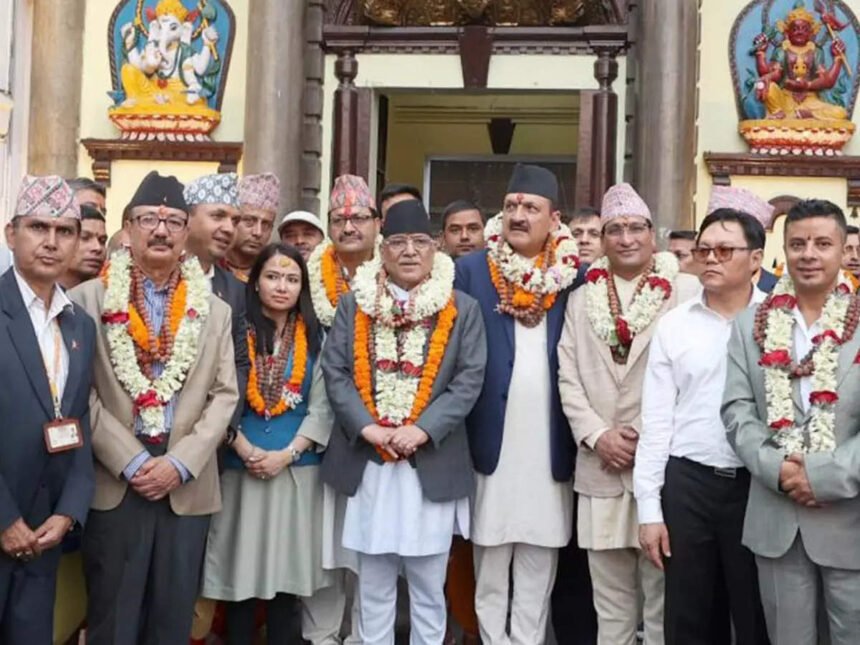Senior Nepalese politicians expressed their discontent on Sunday regarding Prime Minister Pushpa Kamal Dahal “Prachanda’s” recent visit to the renowned Pashupatinath Temple in Kathmandu. They deemed the visit as politically motivated, raising concerns about the leader’s intentions. Accompanied by several cabinet ministers, including Finance Minister Prakash Sharan Mahat and Foreign Minister NP Saud, Prachanda paid a visit to the temple on Saturday.
The Pashupatinath Temple, located on the banks of the Bagmati River, holds great cultural and religious significance for the people of Nepal. As a UNESCO World Heritage site, it attracts numerous devotees and tourists from around the world.
Prachanda’s visit to the temple stirred controversy as it marked his first appearance at the premises. Being a radical Communist leader at the age of 68, his sudden interest in visiting such a revered religious site raised eyebrows among his political counterparts.
Critics argued that Prachanda’s visit was driven by political motives rather than genuine religious devotion. They accused him of attempting to manipulate public sentiment and gain political mileage by associating himself with the sacred temple. Such a move, they claimed, was a calculated strategy to sway public opinion and project himself as a leader who upholds the country’s cultural and religious heritage.
The politicians who voiced their objections believed that the Prime Minister’s visit to Pashupatinath Temple was an insincere gesture, aimed at garnering support and diverting attention from pressing issues facing the nation. They accused him of exploiting religious sentiments for personal and political gain, rather than addressing the more significant challenges that Nepal currently faces.
While the temple visit may have generated attention and media coverage, critics remained unconvinced of the Prime Minister’s intentions. They called for a more transparent and accountable approach to governance, urging Prachanda to prioritize the nation’s welfare over political theatrics.
It is not uncommon for politicians to engage in symbolic acts to cultivate a positive image among the public. However, in the case of Prachanda’s visit to Pashupatinath Temple, many felt that it lacked authenticity and was purely driven by political considerations.
As Nepal continues to grapple with various socio-economic and political issues, citizens and politicians alike are looking for concrete solutions and effective governance. The criticism surrounding Prachanda’s temple visit highlights the need for politicians to focus on substantive policies and actions that address the country’s challenges rather than resorting to symbolism for personal or political gain.
It is the responsibility of political leaders to work towards the betterment of the nation and its citizens, steering clear of actions that are perceived as politically motivated. Only through sincere efforts and a genuine commitment to serving the people can Nepal achieve progress and overcome its pressing issues.




